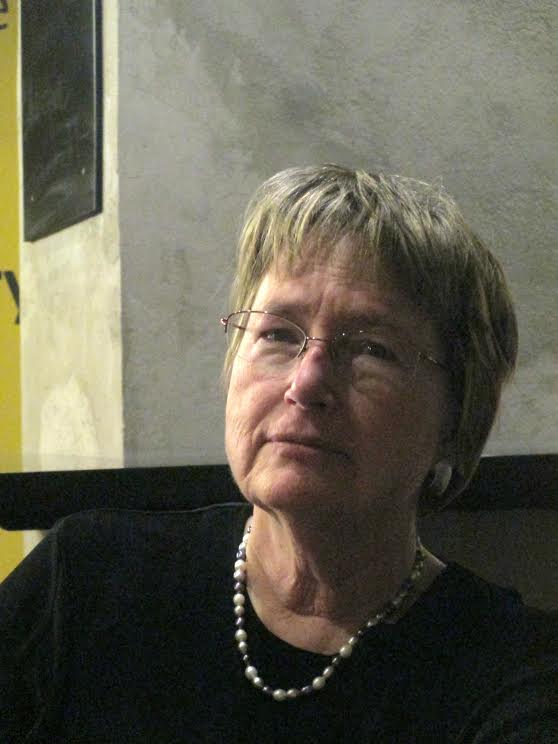 Adewale Adesanya (EEP Ph.D. candidate), Roman Sidortsov, Chelsea Schelly have published “Act locally, transition globally: Grassroots resilience, local politics, and five municipalities in the United States with 100% renewable electricity” in Energy Research & Social Science.
Adewale Adesanya (EEP Ph.D. candidate), Roman Sidortsov, Chelsea Schelly have published “Act locally, transition globally: Grassroots resilience, local politics, and five municipalities in the United States with 100% renewable electricity” in Energy Research & Social Science.
 Erin Pischke (EEP PhD alum) and Adam Wellstead authored the article Reimagining instrument constituencies: the case of conservation policy in Mexico in Policy Sciences (2020).
Erin Pischke (EEP PhD alum) and Adam Wellstead authored the article Reimagining instrument constituencies: the case of conservation policy in Mexico in Policy Sciences (2020).
We examine Mexican instrument constituencies that have promoted use of a payments for ecosystem services (PES) program, the payments for hydrological services (PHS) program. Instrument constituencies are groups of policy actors who are bound by an interest in a particular policy instrument or solution.
 Shan Zhou co-authored the article, “Collaboration mitigates barriers of utility ownership on policy adoption: evidence from the United States”, published in the Journal of Environmental Planning and Management.
Shan Zhou co-authored the article, “Collaboration mitigates barriers of utility ownership on policy adoption: evidence from the United States”, published in the Journal of Environmental Planning and Management.
This paper offers an answer to the question: “To what extent does collaboration between utilities and local governments influence energy policy adoption?” Cross-sectional data from the United States–focused Integrated City Sustainability Database (ICSD) are used to investigate the degree that specific city attributes and state policy influence the creation of city-scale energy policy.
 Adam Wellstead (SS) is a co-author on a paper recently published in Global Health Research Policy 5, 19 (2020) online titled Where is the policy? A bibliometric analysis of the state of policy research on medical tourism.
Adam Wellstead (SS) is a co-author on a paper recently published in Global Health Research Policy 5, 19 (2020) online titled Where is the policy? A bibliometric analysis of the state of policy research on medical tourism.
This article gauges the scope and evolution of policy thinking in medical tourism research through a bibliometric review of published academic literature, to establish the extent to which researchers apply public policy theories and frameworks in their investigation of medical tourism, or consider the policy imperatives of their work.
Professor Shan Zhou and Professor Emeritus Barry D. Solomon published a paper, “Do renewable portfolio standards in the United States stunt renewable electricity development beyond mandatory targets?” in Energy Policy. https://www.sciencedirect.com/science/article/abs/pii/S0301421520301336
Adam Wellstead published again! Globalization and Health (2020)– “The north-south policy divide in transnational healthcare: a comparative review of policy research on medical tourism” by A. Virani, A. Wellstead and M. Howlett. Open access. https://bit.ly/3cHwR6m
 Alumnus Brad Barnett (EEP PhD), Adam Wellstead, and Michael Howlett (Simon Fraser University) published a paper in the journal Energy Research and Social Science titled The evolution of Wisconsin’s woody biofuel policy: Policy layering and dismantling through dilution.
Alumnus Brad Barnett (EEP PhD), Adam Wellstead, and Michael Howlett (Simon Fraser University) published a paper in the journal Energy Research and Social Science titled The evolution of Wisconsin’s woody biofuel policy: Policy layering and dismantling through dilution.
This paper examines the intersection between changing goals, actors and institutions in designing Wisconsin’s woody biopower policy mix.
 Professor Emerita Mary Durfee (SS) published a commentary “Existential Security: Lessons from the Pandemic and Arctic,” on the website for the Arctic Institute in Washington, D.C.
Professor Emerita Mary Durfee (SS) published a commentary “Existential Security: Lessons from the Pandemic and Arctic,” on the website for the Arctic Institute in Washington, D.C.
 Adam Wellstead co-authored a piece with Paul Cairney titled Who can you trust during the coronavirus crisis? based off their paper, The Role of Trust in Policymaking.
Adam Wellstead co-authored a piece with Paul Cairney titled Who can you trust during the coronavirus crisis? based off their paper, The Role of Trust in Policymaking.
Trust is essential during a crisis. It is necessary for cooperation. Cooperation helps people coordinate action, to reduce the need for imposition. It helps reduce uncertainty in a complex world. It facilitates social order and cohesiveness. In a crisis, almost-instant choices about who to trust or distrust make a difference between life and death.
Shan Zhou (SS) and Professor Emeritus Barry Solomon (SS) recently published “Do renewable portfolio standards in the United States stunt renewable electricity development beyond mandatory targets?” in the journal Energy Policy. This article explores the question of whether the renewable portfolio standard (RPS) serves as a floor or a cap on renewable electricity capacity deployment in the U.S.
A panel dataset from 1998 to 2017 is constructed for 28 states that have adopted a mandatory RPS in this timeframe. Using hybrid random effects negative binomial regression models, the authors find that when constrained by renewable electricity potential capacity, more stringent RPSs are significantly associated with a lower level of non-RPS related renewable electricity capacity additions. This negative effect of the RPS on beyond RPS compliance renewable electricity development is weakened by the abundance of renewable energy resources.